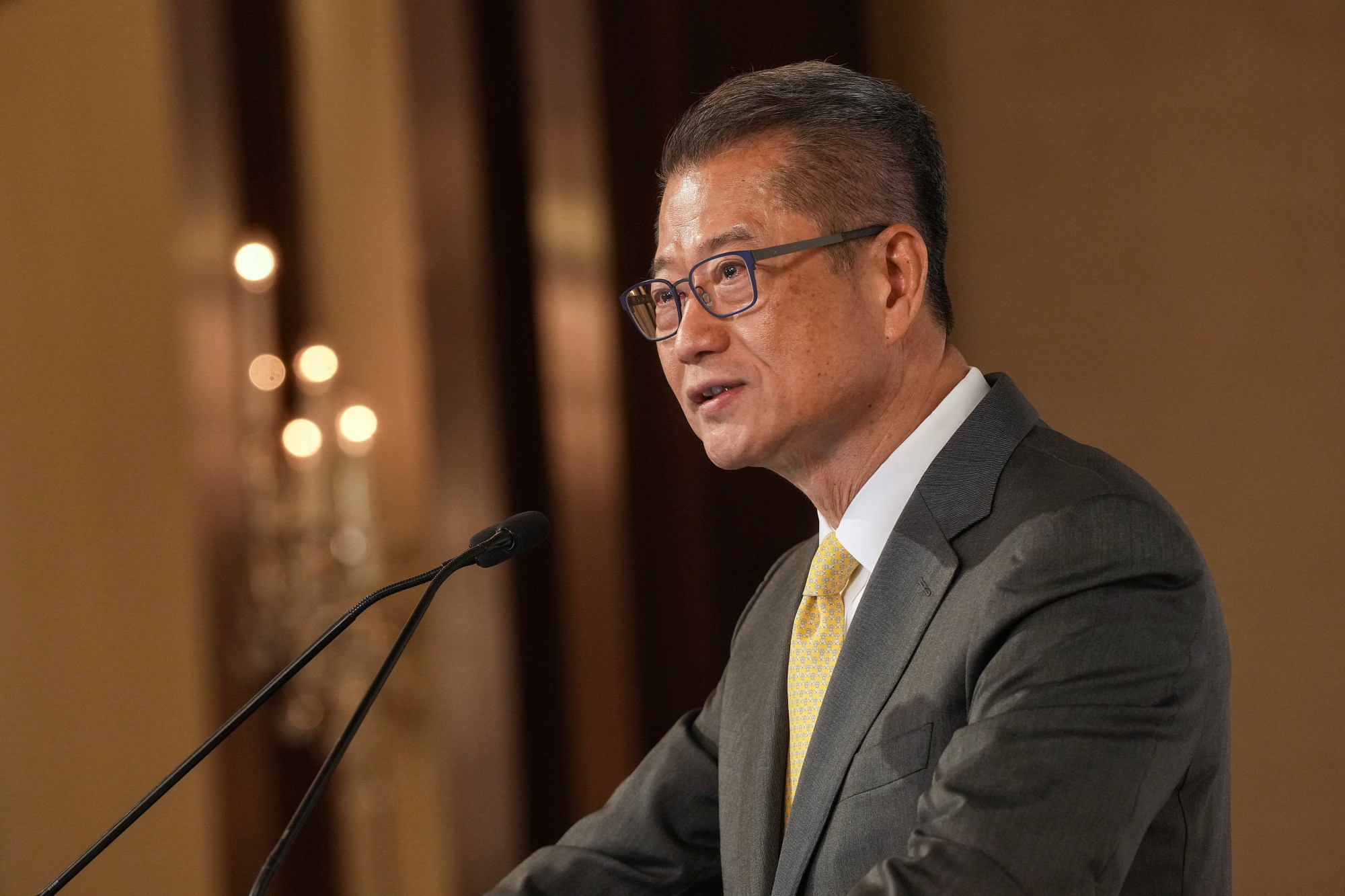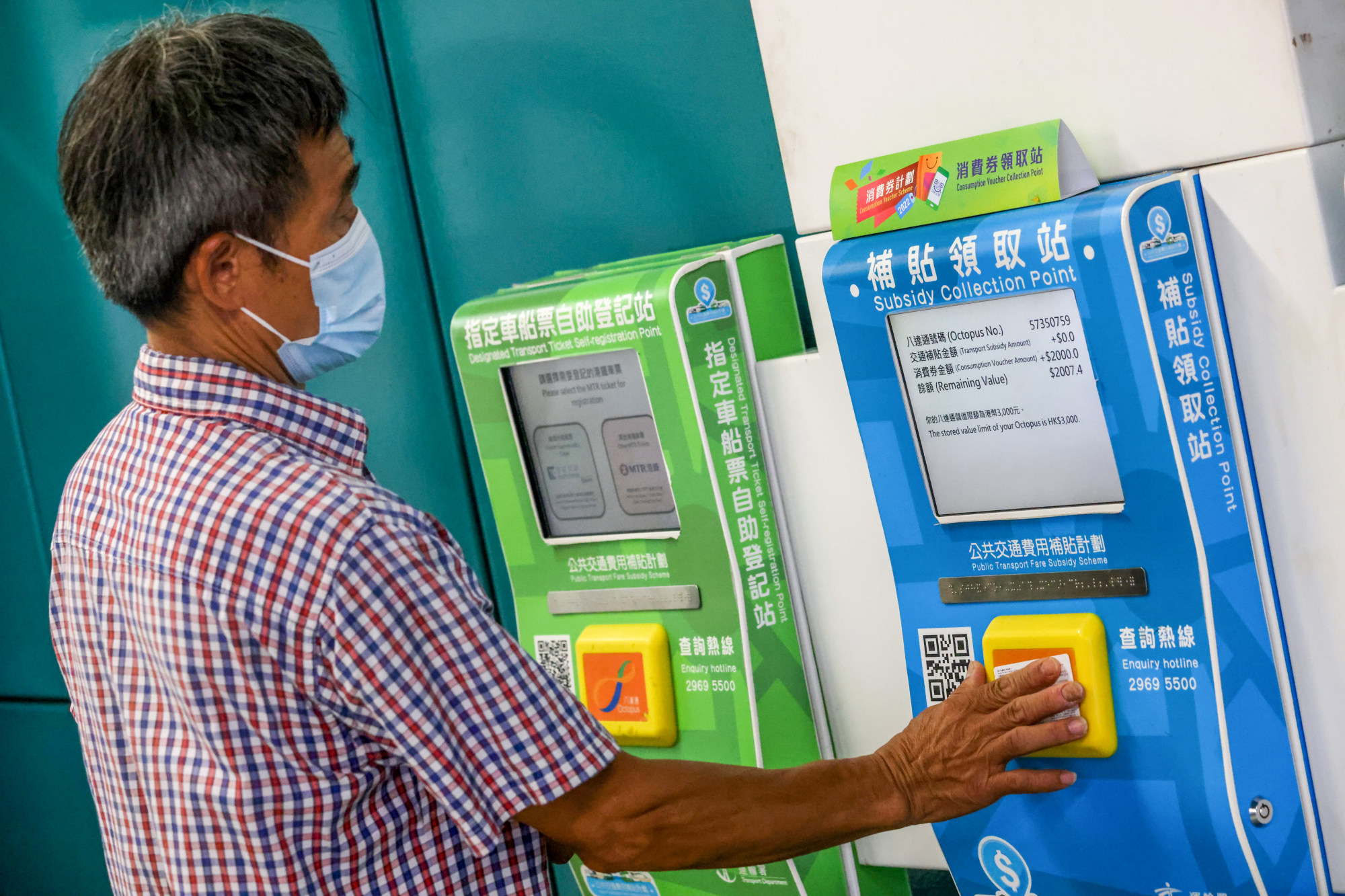
Right time for Hong Kong to invest in Web3 digital economy, finance chief says despite volatility and cryptocurrency fallout
- Paul Chan sounds confident note with city to host two-day digital economy summit attended by industry bigwigs worldwide
- Financial secretary draws parallels with dotcom bubble bursting in 2000, arguing market survivors had innovated and improved economy

“The recent instability of the virtual assets market and the collapse of some virtual asset exchanges have cast doubts on the future of Web3, but we believe this is the best time to promote development,” Chan wrote on his weekly blog.
Chan said conditions had changed since the dotcom bubble burst in 2000.
He explained the quality of the real economy had improved since then and surviving market players had focused on technological innovation, applications and value creation.
“I believe the development of Web3 is going through the same process,” he argued.
Chan said the next stage of development would be to focus on developing blockchain technology more deeply to find wider application for it, which would improve existing business models, ultimately benefiting users and improving the quality of the real economy. A blockchain is effectively a permanent log of transactions with a growing list of records.
Top graduates in Singapore, Malaysia eyeing Hong Kong career path: Paul Chan
Chan said authorities would introduce a licensing regime for virtual asset service providers in June, to ensure appropriate supervision and minimise risks in the innovation and development of Web3.
He added the government was also looking into regulating stablecoins, or cryptocurrencies with their value pegged to another currency or commodity.
Some local experts agreed Hong Kong should not delay in pushing Web3 development.
Chinese Big Data Society executive chairman Witman Hung Wai-man suggested stepping up the building of a regulatory framework to protect investors.
On a potential Web3 bubble, Hung said: “Investor education is important. Digital assets can be difficult to value. Uncertainty, changes in market sentiment can send market values of the assets rising or falling sharply in a very short period of time.”
Hong Kong’s Paul Chan spotlights city’s ‘perfect’ liveability, low taxes
IT sector veteran Joseph Leung Wai-fung said Hong Kong was lagging Singapore in terms of Web3 development.
Leung, a lecturer at Polytechnic University, cited as examples the city state’s Blockchain Challenge campaign that offered funding and mentorships to start-ups to develop applications, and the Financial Sector Technology and Innovation scheme to support the growth of fintech.
“The key areas that Web3 covers include artificial intelligence, Internet of Things, blockchain technology, metaverse augmented reality,” Leung said. “There is no doubt that every international smart city should explore this area.”
He agreed the government should work out clear policies to attract overseas investors and Web3 developers to set up offices in Hong Kong.
Francis Fong Po-kiu, honorary president of the Hong Kong Information Technology Federation, said the government could help by building up infrastructure such as data and supercomputing centres to help small and medium-sized enterprises to adopt more advanced technology.
What does Hong Kong mean by virtual assets?
Simon Lee Siu-po of Chinese University was less optimistic, saying Hong Kong was largely in a “rather passive” position.
“For Web3, I think Hong Kong can participate but the major players of the internet are not in Hong Kong. I doubt how much we can do.”
On the coming summit, Leung said that while he appreciated there would be a lot of decision-makers taking part he hoped to see more Web3 developers invited.
“The discussion might be a bit ‘helicopter view’ and not down to earth, especially in resources support, difficulties encountered,” Leung said, adding the government should have invited more speakers from other international smart cities.
Hong Kong ranked 19th in the 2023 smart city index report compiled by the Switzerland-based International Institute for Management Development. The top three were Zurich, Oslo and Canberra. Singapore came seventh, while Beijing was 12th and Seoul 16th.

Former secretary for financial services and the treasury Ceajer Chan Ka-keung said digital assets and Web3 had potential economic value as they could use blockchain technology to reduce transaction costs and were comparatively safe.
He added that it would be good for the city’s financial markets if there were clear regulations for Web3, which could also attract companies to Hong Kong.
“Our stance should be more open, but our regulation should not be loose,” the ex-minister told a radio programme.
He also highlighted that the world economy was in a period of slow growth. He said people’s consumption patterns might already have changed and that companies would have to adjust their operations to suit.
All you need to know about Hong Kong’s 2023 round of consumption vouchers
Finance chief Chan, meanwhile, said he hoped the next round of consumption vouchers, to be released next Sunday, would further boost economic recovery by stimulating the retail and catering sectors, together with spending vouchers offered under the “Happy Hong Kong” campaign.
Secretary for Home and Youth Affairs Alice Mak Mei-kuen revealed that a launch ceremony for the Happy Hong Kong campaign was being planned in the coming week.
“A series of food fairs, gourmet marketplaces will be organised in various locations across the city around the end of the month,” she said.
“We hope to bring more fun to the community through the events. Detailed programmes will be announced in the launch ceremony in the coming week.”



